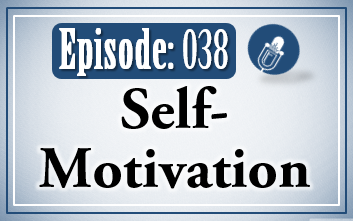SHOW DESCRIPTION
When emotions are high, it is difficult to find a good time to walk away from a situation. It becomes difficult to distinguish between our emotional state and what is the best response to a situation. Maybe you’re in a situation that gets your anger up, or a situation where your desire makes it harder to respond I a healthy manner. Knowing when to walk away is one of the best skills that we can practice.
If you are in a heated argument, things can quickly get out of control if you allow your emotions to push you into a response. We all have situations where we get a little heated and angry. Sometimes we let our emotions take control and we start to lose control of our responses. This is dangerous and can hurt ourselves, and others around us. Our response should in these situations should never be made with emotion.
Conversely, there are times When we let our excitement drive our decisions we make. We have those moments where we want something so bad and our excitement for the thing is so high, that we forgo our rational thought and make an emotional decision that may hurt us down the road. Using buying a car as an example. If you go into a dealership and find the car of your dreams, but you want to try to get the price down, your emotions need to be in check. When a salesperson sees that you are emotionally vested in a specific car, they will take advantage of your emotions and you may end up with a deal you don’t like.
What I like to do when I feel emotions building is to take a step back and analyze my feelings. If it is a tense angry situation, I will walk away and take a cool down break. This is a good practice to get into. Especially in relationships where arguments will happen. If you feel yourself getting emotional, take a break and walk away before your emotional response causes more harm than good. Tell the other person that you need to walk away for a few minutes to clear the emotions and go to a quiet place for yourself. Then take stock of your feelings and what caused them. Once you understand your feelings, try to put yourself into the shoes of the other person and see the situation from their eyes. This will make it easier to keep your emotions from taking control when you go back to finish the discussion.
Another great way to know when to walk away is to have guidelines set before you make any big decisions. In the example of buying a car, know exactly what you can afford, what features you need, what you can live without, and what you want. Know which vehicles you want beforehand and go in with your guidelines in place. Set the tone during the discussion with the salesperson and don’t let them deviate from your guidelines. They want your business, it is up to you to hold your emotions at bay in order to know when to walk away.















